




When it comes to doing laundry, efficiency is key. Many people wonder whether underloading their washing machine is a bad idea. In this article, we will explore the potential drawbacks of underloading your machine and why it’s important to find the right balance.
Underloading your washing machine can have negative consequences on both your laundry and the machine itself. When the drum is not filled to its optimal capacity, the clothes don’t get agitated properly, resulting in less effective cleaning. Additionally, the water and detergent ratio may not be well-balanced, which can lead to wastage and cause your laundry to come out less clean than desired.
Another downside of underloading is that it can put extra strain on your machine. When the drum is not filled, it can cause unbalanced loads, leading to excessive vibrations and wear on the machine’s components. Over time, this can negatively affect the lifespan of your washing machine and potentially result in costly repairs.
It’s important to find the right balance.
While underloading may seem like a quick and convenient solution when you have a small load of laundry, it’s best to avoid it whenever possible. Instead, aim to find the optimal capacity for your machine and adjust your laundry loads accordingly. This will ensure that your clothes are cleaned effectively, reduce water and detergent waste, and prolong the life of your washing machine.
In conclusion, underloading your washing machine can have negative consequences on both the cleanliness of your laundry and the overall performance of your machine. It’s important to find a balance and avoid underloading whenever possible to ensure optimal results and the longevity of your washing machine. By following these tips, you can make the most out of your laundry routine and keep your machine running smoothly for years to come.
Is Underloading Your Washing Machine Bad?
Underloading your washing machine may seem like a good idea if you only have a few items to wash, but is it really the best option? Let’s find out.
1. Inefficient Use of Water and Energy
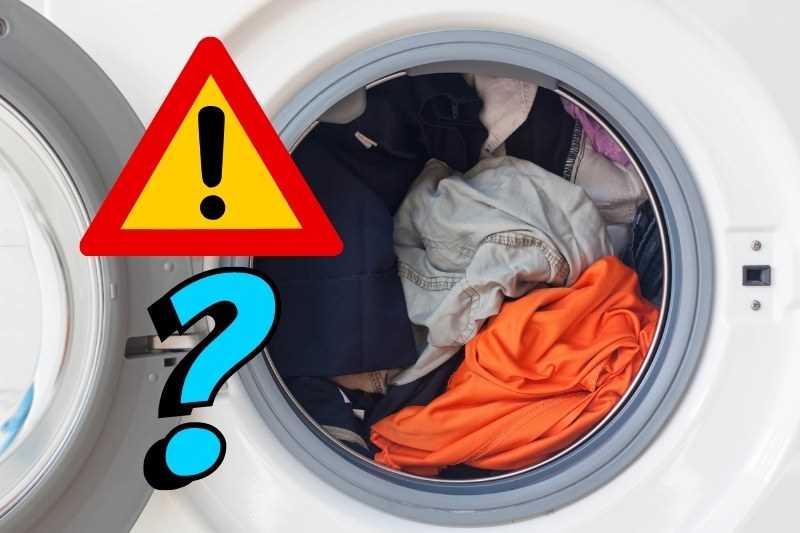
When you underload your washing machine, you’re not utilizing its full capacity, which means you’re wasting water and energy. Modern washing machines are designed to optimize water and energy usage based on the load size, but if there’s not enough laundry, the machine cannot work efficiently.
2. Poor Cleaning Performance
Underloading your washing machine can result in poor cleaning performance. The clothes need to rub against each other to get properly cleaned, and if there are only a few items, they won’t have enough space to do so. This can lead to less effective stain removal and overall cleaning.
3. Imbalanced Spin Cycle
During the spin cycle, the clothes need to distribute evenly to maintain balance. When the load is too light, the clothes can become clumped together, causing the machine to shake or vibrate excessively. This imbalance not only affects the machine’s performance but can also lead to increased wear and tear.
4. Increased Wear on Machine Parts
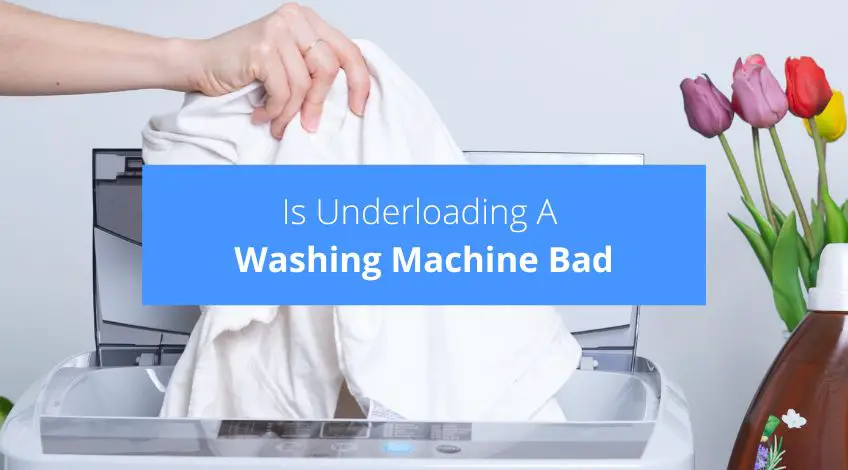
Underloading your washing machine can cause increased wear on its parts. When the machine is not operating at its full capacity, certain components may not receive enough support or cushioning. This can lead to more stress on these parts, potentially resulting in faster deterioration and the need for repairs.
Conclusion
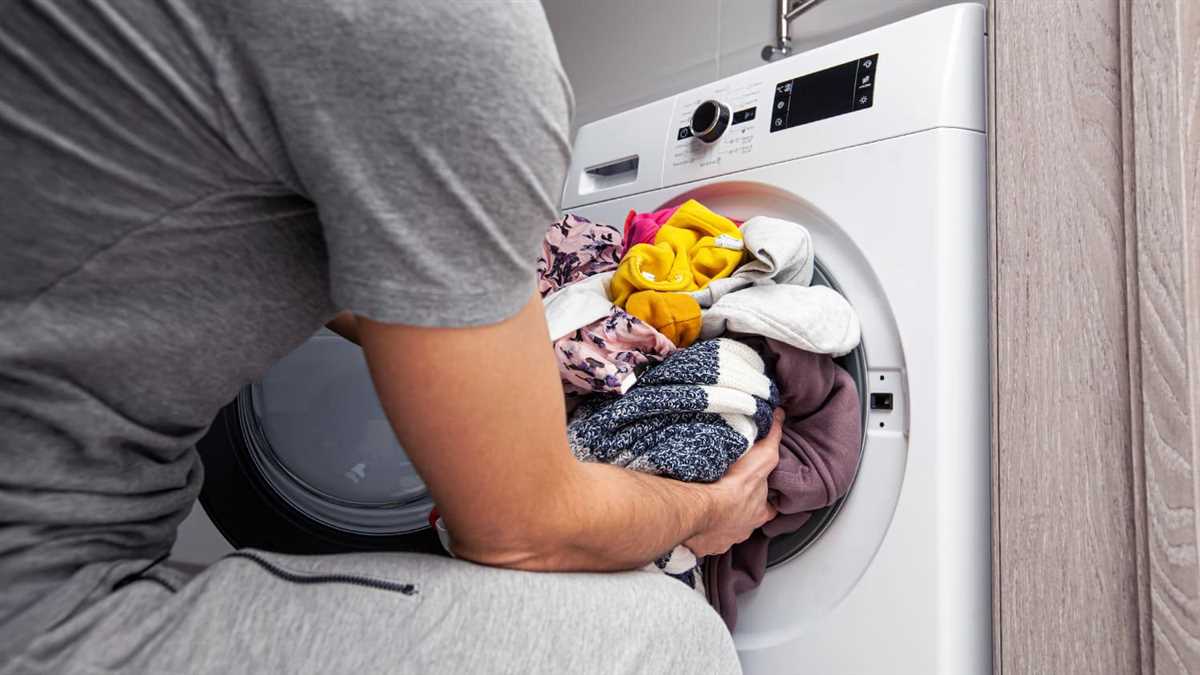
In conclusion, underloading your washing machine is not ideal. It can waste water and energy, result in poor cleaning performance, cause imbalanced spin cycles, and increase wear on the machine’s parts. It’s best to wait until you have a full load of laundry before running the machine to ensure optimal efficiency and performance.
The Impact of Underloading
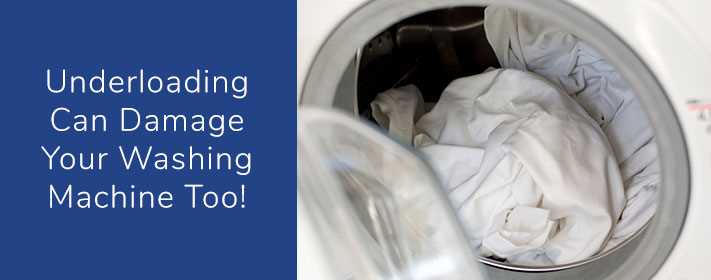
Underloading your washing machine can have several negative effects, both on the machine itself and on the cleanliness of your laundry. While it may be tempting to throw in just a few items to quickly wash them, it is important to consider the consequences.
Inefficient Water Usage
When the washing machine is underloaded, it may not use the optimal amount of water for the load size. Washing machines are designed to calculate the appropriate water level based on the weight of the load. If the load is too small, the machine may use too much water, wasting resources and potentially increasing your water bill.
Decreased Cleaning Performance
An underloaded washing machine may not be able to agitate the laundry properly. Agitation is an important part of the washing process, as it helps to remove dirt and stains from the clothes. If there are too few items in the machine, they may not move around enough to get thoroughly cleaned.
Furthermore, the detergent may not be evenly distributed throughout the wash if the load is too small. This can result in some items being less clean than others.
Increased Wear and Tear
Underloading your washing machine can also lead to increased wear and tear on the machine itself. The drum may become unbalanced during the spin cycle if there are not enough items to distribute the weight properly. This can cause unnecessary strain on the machine and potentially lead to mechanical issues over time.
Additionally, underloading the machine may lead to excessive spinning and agitation, as the machine tries to compensate for the lack of items. This can put extra stress on the drum and other components, potentially shortening the lifespan of your washing machine.
Energy Inefficiency
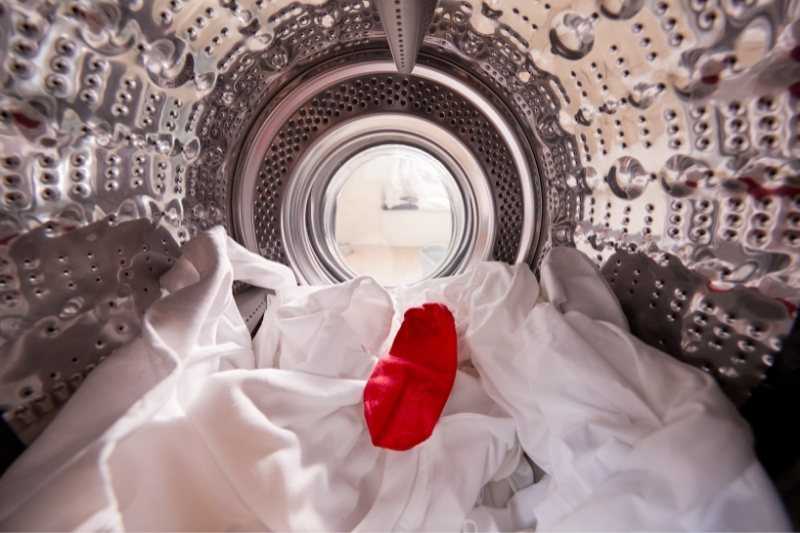
An underloaded washing machine may require more energy to operate efficiently. The machine may need to run for longer periods or at higher temperatures to achieve the desired results. This can increase your energy consumption and contribute to higher energy bills.
Conclusion
In conclusion, underloading your washing machine can have a negative impact on its efficiency, cleaning performance, and lifespan. It is important to follow the manufacturer’s guidelines and load the machine properly to ensure optimal results and prolong its lifespan. By doing so, you can save resources, achieve better cleaning results, and lower your energy bills in the long run.
Energy Efficiency Considerations
When it comes to energy efficiency, underloading your washing machine can have both positive and negative effects. Here are some key considerations to keep in mind:
- Water Usage: Underloading your washing machine means you are using more water per item of clothing. This can lead to wastage of water, as the machine fills up with water regardless of the load size. It is generally recommended to only wash a full load of laundry to minimize water usage and maximize energy efficiency.
- Electricity Usage: Running a washing machine consumes energy throughout the wash cycle. However, if you underload your machine, it may spend more time trying to balance the load or adjust the settings to accommodate the small load. This can result in additional energy usage, as the machine works harder to complete a wash cycle. Washing full loads helps optimize energy efficiency by maximizing the efficiency of each cycle.
- Detergent Waste: When you underload your washing machine, you may end up using more detergent than necessary. The excess detergent can contribute to both water and energy waste. Using the appropriate amount of detergent for a full load can help reduce waste and improve overall energy efficiency.
- Life Span: Over time, underloading your washing machine can have negative effects on its performance and lifespan. If a machine is consistently underloaded, it may experience issues with balance, agitation, and cleaning. This can lead to more frequent repairs or the need for premature replacement, which is not conducive to energy efficiency
In conclusion, while there may be certain circumstances where underloading your washing machine is unavoidable, it is generally recommended to wash full loads to optimize energy efficiency, minimize water usage, and prolong the lifespan of your machine. Additionally, choosing an energy-efficient washing machine model with programmable load sensing capabilities can help further conserve energy and water.
Effectiveness of Cleaning
When it comes to the effectiveness of cleaning, underloading your washing machine can have a negative impact on the quality of cleaning. Here are a few factors to consider:
1. Insufficient Water Usage
Underloading your washing machine means there will be less laundry in the drum, which leads to a lower amount of water being used. This can result in inadequate water coverage for the clothes, leading to less effective cleaning. The clothes may not get fully saturated, and the detergent may not be evenly distributed.
2. Inefficient Agitation
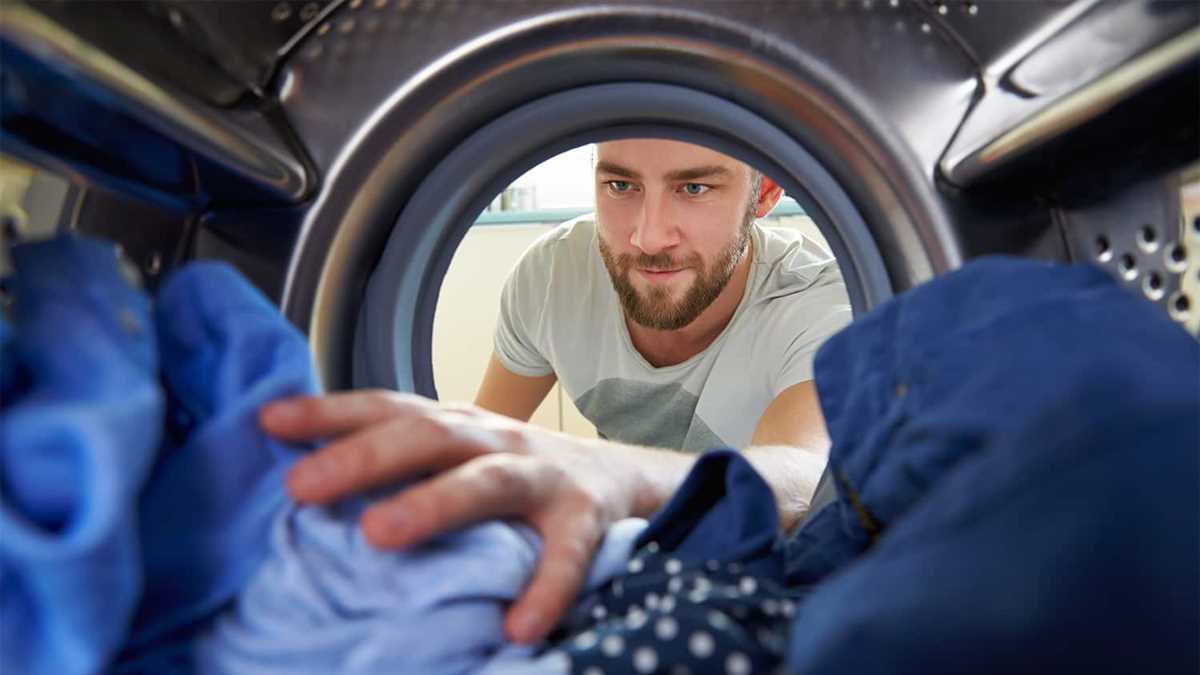
The washing machine’s agitator and drum rotation play a crucial role in removing dirt and stains from the clothes. When the load is too light, there may not be enough friction and movement to dislodge the dirt effectively. This can result in clothes that are not as clean as desired.
3. Incomplete Detergent Dissolution
Underloading can also lead to incomplete dissolution of the detergent. With less laundry in the drum, the detergent may not get evenly dispersed throughout the load, leaving some clothes with insufficient cleaning agents. This can result in patches of dirt or stains remaining on the clothes after the wash cycle.
4. Uneven Weight Distribution
Underloading your washing machine can cause an imbalance in the weight distribution inside the drum. This imbalance can lead to excessive movement during the wash cycle, which may result in noisy operations and potentially damage the machine over time.
5. Energy and Water Wastage
Running a washing machine with a light load is inefficient in terms of energy and water consumption. The machine uses a set amount of energy and water for each cycle, regardless of the load size. Underloading means that energy and water are wasted since they are not being fully utilized.
Overall, underloading your washing machine can negatively affect the effectiveness of cleaning and result in wasted resources. It is generally recommended to load the machine to its capacity or use the appropriate load size settings for optimal cleaning results.
Avoiding Wear and Tear
Proper loading techniques can help you avoid unnecessary wear and tear on your washing machine. Here are a few tips to keep in mind:
1. Follow the recommended load capacity
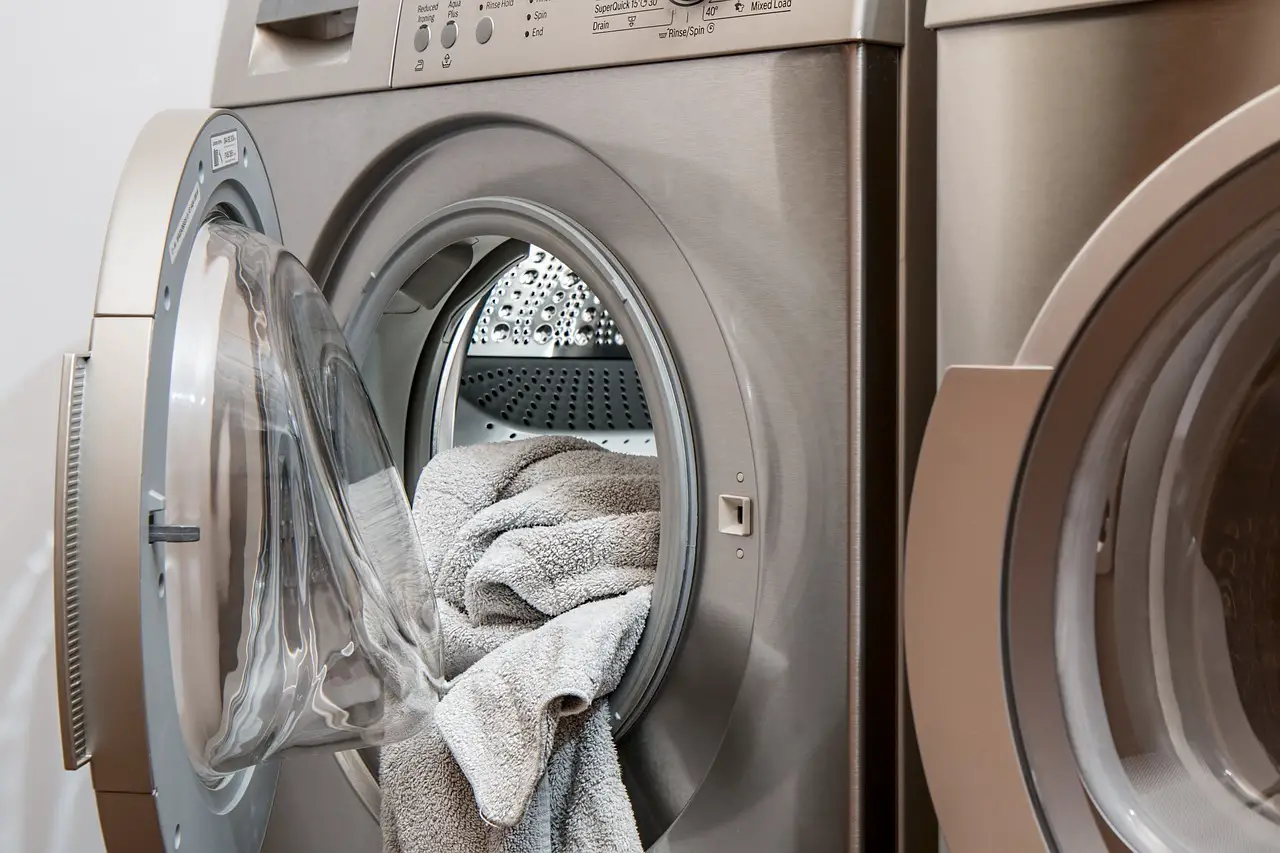
It’s important to follow the manufacturer’s guidelines for load capacity. Overloading the washing machine can strain the motor and other components, causing them to wear out faster. Underloading, on the other hand, may lead to imbalance during the spin cycle, potentially damaging the machine.
2. Distribute the weight evenly
When loading your washing machine, try to distribute the weight of the clothes evenly. This will help prevent the drum from becoming off-balance during the spin cycle. Uneven weight distribution can cause excessive vibration and damage the machine over time.
3. Use proper sorting techniques
Sort your laundry by fabric type and color to prevent any damage caused by mixing different materials or colors. Washing delicate items with heavier items can cause them to tear, while colors bleeding onto lighter fabrics can lead to staining. Follow the manufacturer’s instructions for the appropriate cycle and temperature settings for each load.
4. Avoid washing single items
Washing single items, especially heavy ones like towels or jeans, can put unnecessary strain on your washing machine. To avoid wear and tear, it is generally best to wait until you have enough similar items for a proper load before running the machine.
5. Clean your machine regularly
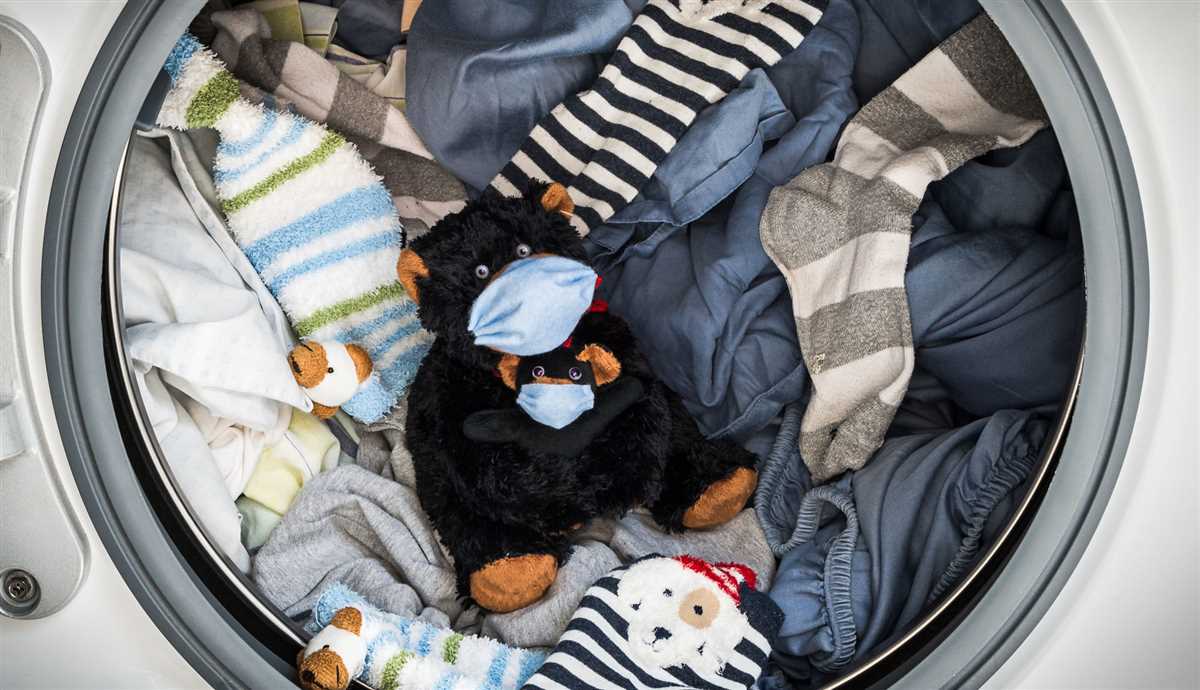
Regularly cleaning your washing machine helps prevent build-up of detergent residue, lint, and other debris that can affect its performance. Follow the manufacturer’s instructions for cleaning and maintenance, and consider using a washing machine cleaner periodically to keep it running smoothly.
6. Keep an eye on the machine during operation
While your washing machine is running, pay attention to any unusual noises or vibrations. These could be signs of a problem that needs to be addressed. Timely maintenance and repairs can help prevent further damage and extend the lifespan of your machine.
By following these tips and taking proper care of your washing machine, you can avoid unnecessary wear and tear, helping it perform efficiently for years to come.
Recommendations for Optimal Load Size
When it comes to washing machines, the size of the load plays a crucial role in its performance. Loading your washing machine properly can help ensure efficient cleaning and prolong the life of your appliance. Here are some recommendations for optimal load size:
- Do not overfill: Overloading the washing machine can lead to poor cleaning results and unnecessary strain on the machine. Make sure to leave enough space for the clothes to move freely.
- Use the recommended capacity: Refer to the manufacturer’s guidelines to determine the recommended capacity for your washing machine. Stick to this recommended limit to achieve the best results.
- Separate different fabrics: Sort your laundry based on fabric type and color to prevent damage and ensure better cleaning. Washing similar fabrics together can help optimize the load size.
- Distribute weight evenly: Avoid loading the washing machine with heavy items on one side and lighter items on the other. Instead, distribute the weight evenly to maintain balance during the wash cycle.
- Avoid underloading: While it is important not to overload the washing machine, underloading can also have adverse effects. A very small load can cause the machine to become unbalanced, resulting in inefficient cleaning and potential damage to the appliance. Try to find the right balance for your machine.
- Consider using extra rinses: If you are washing a smaller load, adding an extra rinse cycle can help ensure proper cleaning and remove any remaining detergent.
By following these recommendations for optimal load size, you can maximize the efficiency and effectiveness of your washing machine, leading to cleaner clothes and a longer lifespan for the appliance.
FAQ
Is it bad to underload your washing machine?
Underloading your washing machine once in a while is generally not a problem. However, consistently underloading your machine may cause imbalance during the wash cycle, leading to inefficient cleaning and potential damage to the machine.
What are the consequences of underloading a washing machine?
Underloading a washing machine can result in the clothes not being properly agitated and cleaned. It may also lead to excessive detergent use, as the detergent-to-clothes ratio will be higher with fewer clothes. Additionally, underloading can cause the machine to become unbalanced, resulting in noisy operation and potential damage to the machine.
Can underloading a washing machine cause damage?
Underloading a washing machine occasionally is unlikely to cause any significant damage. However, consistent underloading can lead to the machine becoming unbalanced during the wash cycle, which may put strain on the motor and other parts, potentially causing damage over time.
How do I know if I am underloading my washing machine?
You can determine if you are underloading your washing machine by checking the weight of the clothes you are washing. If the load is substantially less than the machine’s capacity, you may be underloading it. Additionally, if the machine frequently becomes unbalanced or you notice that the clothes are not being properly cleaned, it could be a sign of underloading.
What is the ideal load size for a washing machine?
The ideal load size for a washing machine depends on its capacity, which is typically measured in kilograms. It is generally recommended to load the machine to about 80-90% of its capacity. This allows enough space for the water and detergent to properly circulate and agitate the clothes, ensuring effective cleaning without overloading or underloading the machine.













